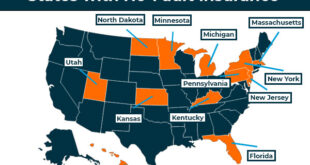Emergency Funds Loan: Quick Financial Relief When emergencies strike, having access to an emergency funds loan can be a lifesaver. This article delves deep into what emergency funds loans are, how they work, and tips to maximize their benefits. Whether you’re dealing with unexpected medical bills, urgent home repairs, or other unforeseen expenses, this guide will help you navigate your options effectively.
What is an Emergency Funds Loan?
An emergency funds loan is a short-term loan designed to provide quick financial relief during crises. These loans often come with streamlined application processes, quick disbursement, and flexible repayment terms to suit urgent needs.
Why Consider an Emergency Funds Loan?
Emergencies demand immediate solutions. Here are key reasons why an emergency funds loan might be your best choice:
- Speed: Fast approval and disbursement.
- Flexibility: Suitable for various emergency expenses.
- Accessibility: Available for individuals with varying credit scores.
- Convenience: Often processed online.
Types of Emergency Funds Loans
- Personal Loans: Offered by banks and credit unions, these unsecured loans cater to diverse emergencies.
- Payday Loans: Short-term loans designed to be repaid on your next payday.
- Credit Card Cash Advances: Quick cash using your credit card balance.
- Title Loans: Loans secured against your vehicle’s title.
- Online Loans: Digital platforms offering streamlined loan approvals.
How to Apply for an Emergency Funds Loan
- Assess Your Needs: Determine the amount required to address your emergency.
- Research Lenders: Compare rates, terms, and reputations of various lenders.
- Prepare Documentation: Gather proof of income, identification, and bank details.
- Submit Application: Complete the online or offline application process.
- Await Approval: Many lenders provide instant or same-day decisions.
- Receive Funds: Funds are typically deposited directly into your account.
Pros and Cons of Emergency Funds Loans
Pros:
- Quick access to funds.
- Minimal documentation.
- Flexible repayment options.
- Available for bad credit in some cases.
Cons:
- High interest rates for some loans.
- Risk of debt cycle with payday loans.
- Limited borrowing amounts.
Eligibility Criteria
To qualify for an emergency funds loan, you typically need:
- Proof of income.
- Active bank account.
- Valid government-issued ID.
- Credit history (varies by lender).
Alternatives to Emergency Funds Loans
- Savings Account: Use your emergency fund if available.
- Borrow from Family/Friends: Interest-free options.
- Negotiating Payment Plans: Work out terms with creditors.
- Employer Advances: Request an advance on your salary.
How to Manage Emergency Funds Loans Effectively
- Borrow Only What You Need: Avoid over-borrowing.
- Understand Terms and Conditions: Be clear on repayment timelines and fees.
- Set Up Automatic Payments: Prevent missed payments.
- Plan for Repayment: Adjust your budget to prioritize loan repayment.
10 Tips for Using Emergency Funds Loans Wisely
- Borrow only for genuine emergencies.
- Compare multiple lenders for the best rates.
- Read the fine print to avoid hidden charges.
- Opt for shorter repayment periods when possible.
- Avoid payday loans unless absolutely necessary.
- Use online calculators to estimate repayment amounts.
- Maintain a good credit score to access better rates.
- Avoid rollovers or extensions that increase costs.
- Build an emergency fund for the future.
- Seek financial advice if unsure about the loan terms.
10 FAQs About Emergency Funds Loans
- What is an emergency funds loan?
A short-term loan designed to provide quick access to cash during emergencies. - How quickly can I get the funds?
Some lenders offer same-day approval and disbursement. - Do I need good credit to qualify?
Not necessarily; many lenders consider applicants with poor credit. - Are emergency funds loans expensive?
They can have higher interest rates compared to traditional loans. - What documents are required?
Proof of income, identification, and bank account details. - Can I repay early?
Yes, but check for prepayment penalties. - Are there limits on borrowing amounts?
Yes, amounts depend on the lender and your income. - What if I can’t repay on time?
Late payments may incur fees or affect your credit score. - Can I apply online?
Yes, many lenders offer online applications for convenience. - Is it safe to apply online?
Yes, if you use reputable and secure lending platforms.
Conclusion
Emergency funds loans are invaluable for addressing urgent financial needs. They offer a lifeline during critical times, providing quick and flexible solutions. However, it’s essential to understand their terms, manage them responsibly, and explore alternative options when possible.
Building a robust emergency fund is the best way to prepare for unforeseen circumstances. Still, when that’s not an option, emergency funds loans can help you weather the storm with minimal disruption. Always prioritize financial literacy to make informed decisions and maintain control over your financial health.
 Gerbang Finance
Gerbang Finance

